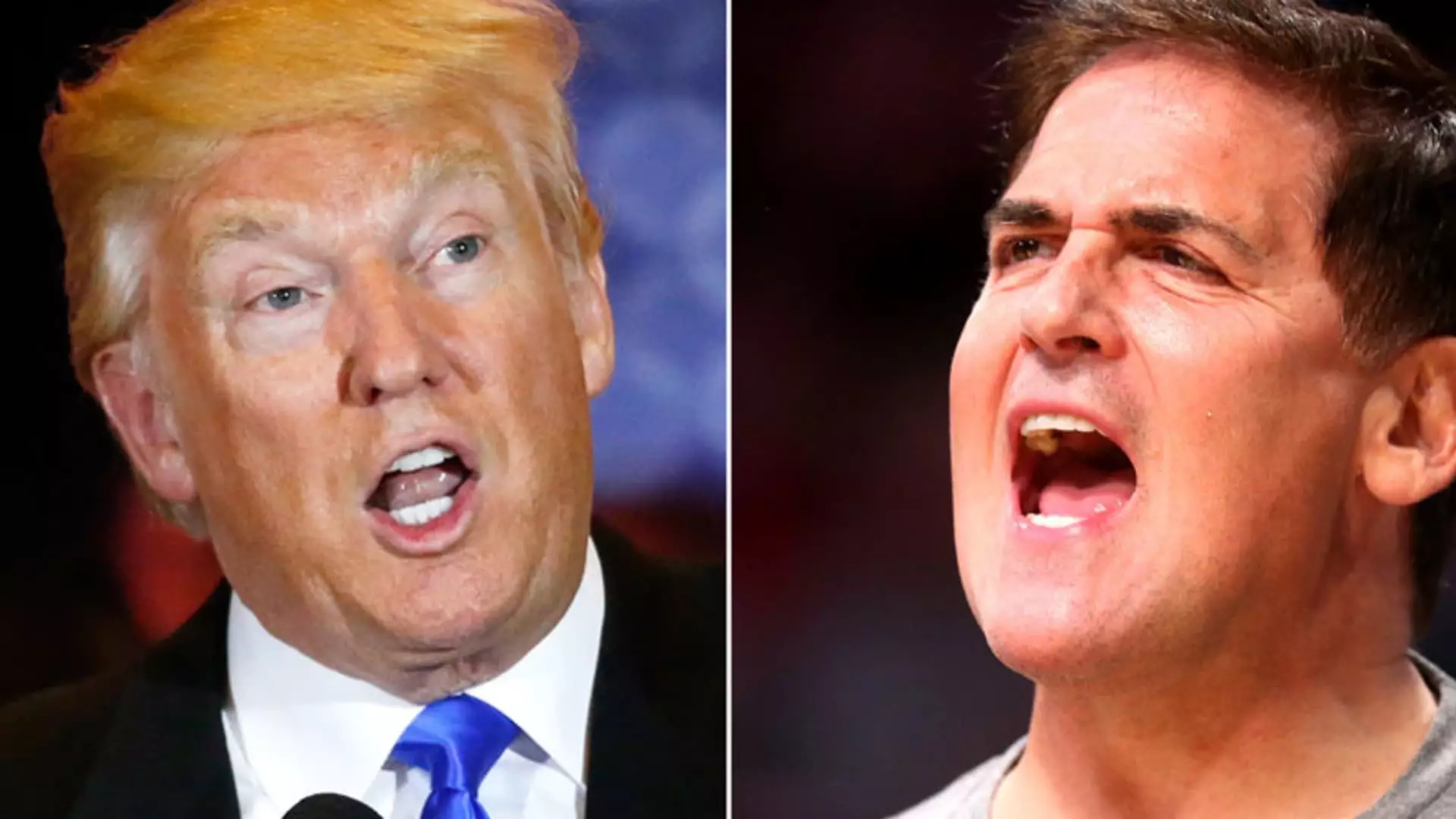In the ever-evolving landscape of political alliances and rivalries, the feud between former President Donald Trump and billionaire Mark Cuban has taken a new turn that highlights the unpredictable nature of contemporary politics. A recent tirade by Trump on Truth Social has drawn attention, with him labeling Cuban a “loser” after the Dallas Mavericks owner openly supported Vice President Kamala Harris. The disintegration of their once amicable relations exemplifies how rapidly allegiances can shift in the realm of high-profile figures.
Cuban has emerged as a vocal critic of Trump’s policy proposals, particularly regarding tariffs. During a Harris rally in Wisconsin, he bluntly stated, “This man has so little understanding of tariffs, he thinks that China pays for them,” undermining Trump’s credibility on economic issues. This point raises important discussions about the implications of their respective positions on tariffs, which Trump advocates at rates as high as 60% for Chinese imports. Critics, including economists, warn that such policies are likely to penalize American consumers more than the intended foreign adversaries.
The derision between Trump and Cuban starkly contrasts their past interactions, characterized by cordial exchanges and mutual respect. In 2015, Cuban hailed Trump as a refreshing influence in the political sphere during an appearance on “Fox & Friends.” This admiration has since evaporated, revealing an unsettling narrative of disillusionment that can be observed in the politics of today. The decline from admiration to contempt is indicative of how personal rivalries often reflect broader ideological clashes.
Cuban’s choice to back Harris marks a notable divergence from his previous choice to support Hillary Clinton in the 2016 election, aligning him further with Democratic ideologies. This alignment places Cuban on a collision course with Trump, who has increasingly sought to frame the political discourse around economic nationalism and populism.
As the political landscape heats up, Cuban appears to be positioning himself as a prominent figure within the Democratic Party, perhaps with aspirations of attaining a government role, possibly even necessitating the departure of SEC Chair Gary Gensler. Such aspirations reflect a calculated strategy to leverage his brand and influence in the political arena, showcasing ambition beyond mere celebrity.
Conversely, Trump has aligned himself with tech mogul Elon Musk, fostering another layer of rivalry with Cuban. By securing Musk’s support, Trump aims to amplify his visibility and credibility among tech-savvy voters while continuing to bolster a populist agenda.
This conflict encapsulates a broader narrative within American politics, where former allies can quickly become adversaries. The juxtaposition of Cuban’s critique against Trump’s blistering retorts showcases the duality of personality and politics, emphasizing how personal branding intertwines with political ambition. The ongoing spat between these two titans signifies not just an individual feud, but a reflection of the volatile dynamics that now characterize American political discourse. Their rivalry is more than a personal clash; it symbolizes the deepening divides within American society regarding leadership, policies, and the future direction of the nation.



Leave a Reply